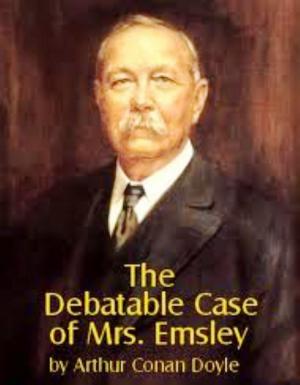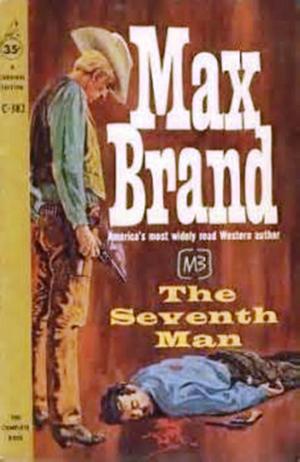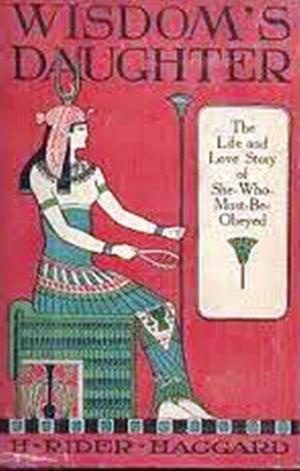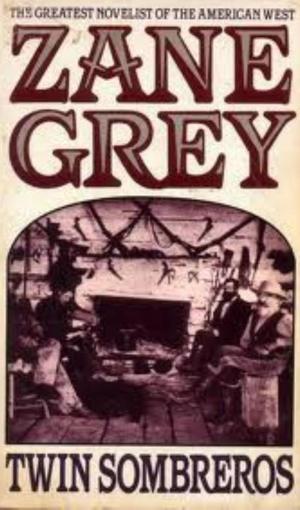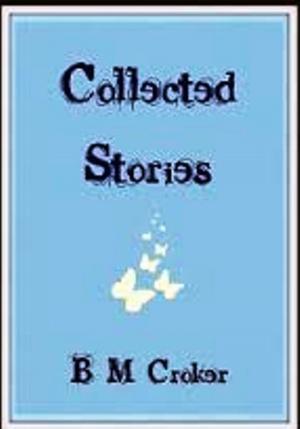| Author: | Miles Franklin | ISBN: | 1230000192995 |
| Publisher: | WDS Publishing | Publication: | October 29, 2013 |
| Imprint: | Language: | English |
| Author: | Miles Franklin |
| ISBN: | 1230000192995 |
| Publisher: | WDS Publishing |
| Publication: | October 29, 2013 |
| Imprint: | |
| Language: | English |
The summer sun streamed meltingly down on the asphalted siding of the
country railway station and occasioned the usual grumbling from the
passengers alighting from the afternoon express.
There were only three who effect this narrative--a huge, red-faced,
barrel-like figure that might have served to erect as a monument to
the over-feeding in vogue in this era; a tall, spare, old fellow with
a grizzled beard, who looked as though he had never known a succession
of square feeds; and myself, whose physique does not concern this
narrative.
Having surrendered our tickets and come through a down-hill passage to
the dusty, dirty, stony, open space where vehicles awaited travellers,
the usual corner "pub."--in this instance a particularly dilapidated
one--and three tin kangaroos fixed as weather-cocks on a dwelling
over the way, and turning hither and thither in the hot gusts of wind,
were the first objects to arrest my attention in the town of Noonoon,
near the river Noonoon, whereaway it does not particularly matter. The
next were the men competing for our favour in the matter of vehicular
conveyance.
The big man, by reason of his high complexion, abnormal waist
measurement, expensive clothes, and domineering manner, which
proclaimed him really a lord of creation, naturally commanded the
first and most obsequious attention, and giving his address as
"Clay's," engaged the nearest man, who then turned to me.
"Where might you be going?"
"To Jimmeny's Hotel."
"Right O! I can just drop you on the way to Clay's," said he; and the
big swell grunted up to a box seat, while I took a position in the
body of the vehicle commanding a clear view of the grossness of the
highly coloured neck rolling over his collar.
The journey through the town unearthed the fact that it resembled many
of its compeers. The oven-hot iron roofs were coated with red dust; a
few lackadaisical larrikins upheld occasional corner posts; dogs
conducted municipal meetings here and there; the ugliness of the
horses tied to the street posts, where they baked in the sun while
their riders guzzled in the prolific "pubs.," bespoke a farming rather
than a grazing district; and the streets had the distinction of being
the most deplorably dirty and untended I have seen.
The same could be said of a cook, or some such individual of whom I
caught a glimpse when landed at a corner hotel, where I sat inside the
door of a parlour awaiting the appearance of the landlady or the
publican, while for diversion I watched the third arrival wending his
way from the station on foot and shouting something concerning melons
to a man in a dray in the middle of the roadway.
Evidently it was the land of melons and other fruits and vegetables.
Over at the railway, loaded waggons, drays, and carts were backed
against a line of trucks drawn up to convey such produce to the city
and other parts of the country, while strings of vehicles similarly
burdened were thundering up the street. Some carts were piled with
cases of peaches, grapes, tomatoes, and rock-melons--the rich aromatic
scent of the last mentioned strongly asserting their presence as they
passed. On some waggons the water-melons were packed in straw and had
the grower's initials chipped in the rind, others were not so
distinguished, and at intervals the roughness of the thoroughfare
bumped one off. If the fall did not break it quite in two, a stray
loafer pulled it so and tore out a little of the sweet and luscious
heart, leaving the remainder to the ants and fowls. The latter were
running about on friendly terms with the dogs, which they equalled in
variety and number. Droves of small boys haunted the railway premises
at that time of the year and eagerly assisted the farmers to truck
their melons in return for one, and came away with their spoils under
their arms. Never before had I seen so many melons or so large. Some
weighed sixty and eighty pounds or more, while those from sixteen to
twenty-five pounds, in all varieties,--Cuban Queens, Dixies, Halbert's
Honey, and Cannon Balls,--were procurable at one shilling the dozen,
and nearly as much produce as sent away wasted in the fields for want
of a market.
The summer sun streamed meltingly down on the asphalted siding of the
country railway station and occasioned the usual grumbling from the
passengers alighting from the afternoon express.
There were only three who effect this narrative--a huge, red-faced,
barrel-like figure that might have served to erect as a monument to
the over-feeding in vogue in this era; a tall, spare, old fellow with
a grizzled beard, who looked as though he had never known a succession
of square feeds; and myself, whose physique does not concern this
narrative.
Having surrendered our tickets and come through a down-hill passage to
the dusty, dirty, stony, open space where vehicles awaited travellers,
the usual corner "pub."--in this instance a particularly dilapidated
one--and three tin kangaroos fixed as weather-cocks on a dwelling
over the way, and turning hither and thither in the hot gusts of wind,
were the first objects to arrest my attention in the town of Noonoon,
near the river Noonoon, whereaway it does not particularly matter. The
next were the men competing for our favour in the matter of vehicular
conveyance.
The big man, by reason of his high complexion, abnormal waist
measurement, expensive clothes, and domineering manner, which
proclaimed him really a lord of creation, naturally commanded the
first and most obsequious attention, and giving his address as
"Clay's," engaged the nearest man, who then turned to me.
"Where might you be going?"
"To Jimmeny's Hotel."
"Right O! I can just drop you on the way to Clay's," said he; and the
big swell grunted up to a box seat, while I took a position in the
body of the vehicle commanding a clear view of the grossness of the
highly coloured neck rolling over his collar.
The journey through the town unearthed the fact that it resembled many
of its compeers. The oven-hot iron roofs were coated with red dust; a
few lackadaisical larrikins upheld occasional corner posts; dogs
conducted municipal meetings here and there; the ugliness of the
horses tied to the street posts, where they baked in the sun while
their riders guzzled in the prolific "pubs.," bespoke a farming rather
than a grazing district; and the streets had the distinction of being
the most deplorably dirty and untended I have seen.
The same could be said of a cook, or some such individual of whom I
caught a glimpse when landed at a corner hotel, where I sat inside the
door of a parlour awaiting the appearance of the landlady or the
publican, while for diversion I watched the third arrival wending his
way from the station on foot and shouting something concerning melons
to a man in a dray in the middle of the roadway.
Evidently it was the land of melons and other fruits and vegetables.
Over at the railway, loaded waggons, drays, and carts were backed
against a line of trucks drawn up to convey such produce to the city
and other parts of the country, while strings of vehicles similarly
burdened were thundering up the street. Some carts were piled with
cases of peaches, grapes, tomatoes, and rock-melons--the rich aromatic
scent of the last mentioned strongly asserting their presence as they
passed. On some waggons the water-melons were packed in straw and had
the grower's initials chipped in the rind, others were not so
distinguished, and at intervals the roughness of the thoroughfare
bumped one off. If the fall did not break it quite in two, a stray
loafer pulled it so and tore out a little of the sweet and luscious
heart, leaving the remainder to the ants and fowls. The latter were
running about on friendly terms with the dogs, which they equalled in
variety and number. Droves of small boys haunted the railway premises
at that time of the year and eagerly assisted the farmers to truck
their melons in return for one, and came away with their spoils under
their arms. Never before had I seen so many melons or so large. Some
weighed sixty and eighty pounds or more, while those from sixteen to
twenty-five pounds, in all varieties,--Cuban Queens, Dixies, Halbert's
Honey, and Cannon Balls,--were procurable at one shilling the dozen,
and nearly as much produce as sent away wasted in the fields for want
of a market.




